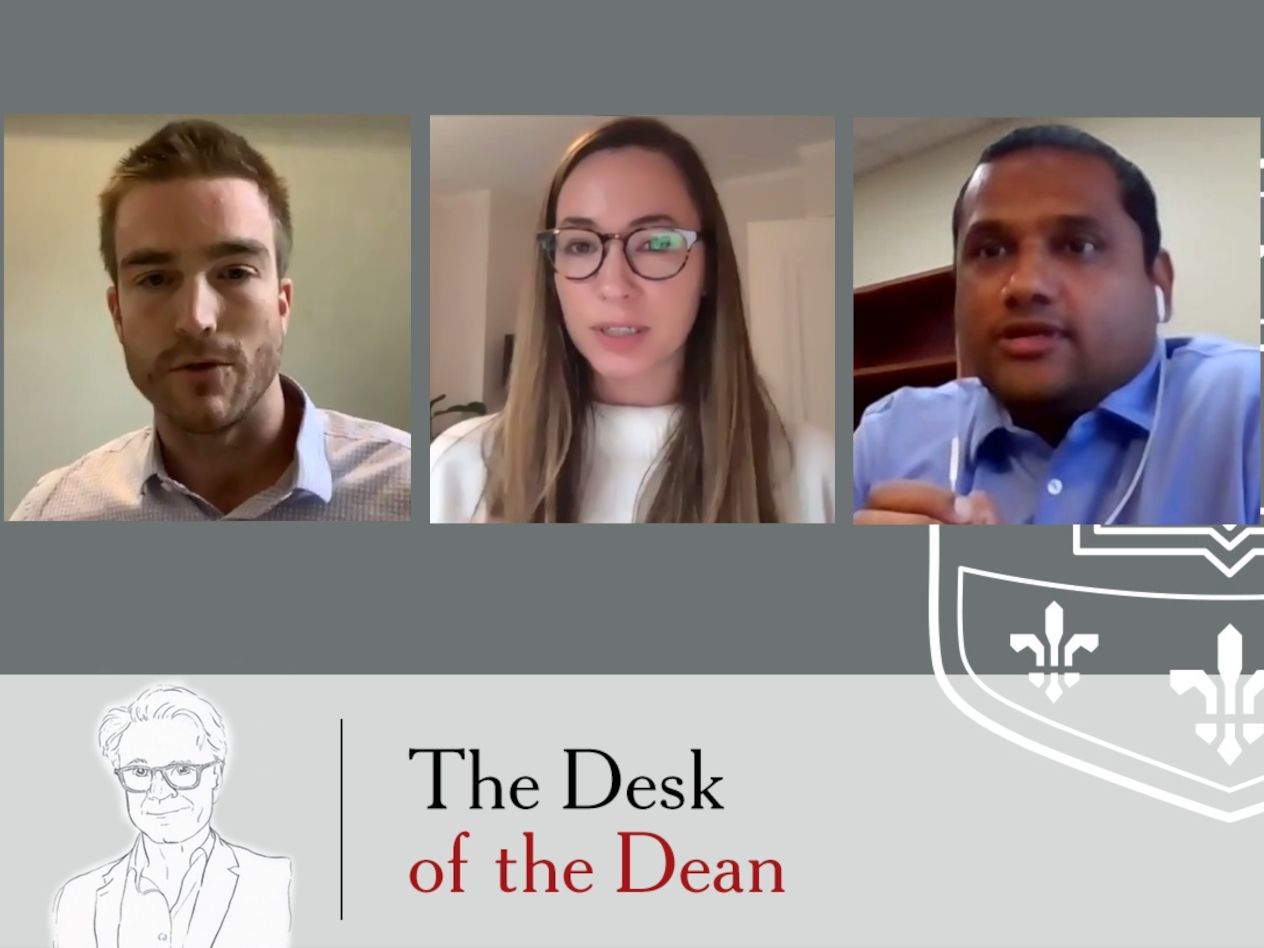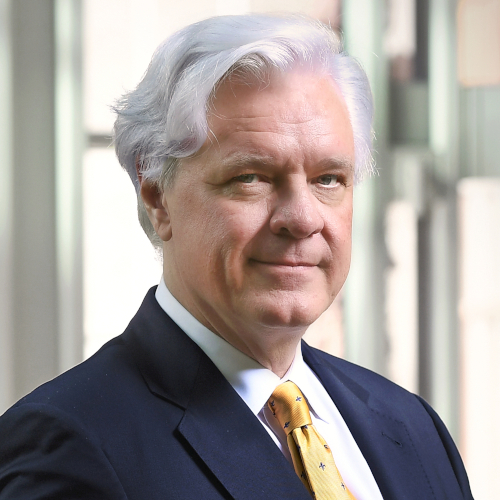Continuous improvement—even through a pandemic
- November 4, 2020
- By Mark Taylor
- 3 minute read

One month after fall classes began, my colleagues surveyed students for their first impressions of hybrid learning—the course structure for most of our classes.
With strong survey participation across all our programmes, student reaction was positive. Nearly 99% were happy with our public health measures. Nearly 95% agreed their instructors were prepared. Nearly three-quarters said learning today was the same or better than it was in spring.
“Olin has been successful in making this transition easy, and professors have been very accommodating,” one student commented.
Encouraging, indeed. I’m proud of Olin’s staff and faculty for their tireless work toward a world-class experience in the midst of world-crushing circumstances. I’m equally proud of our students, who have shown extraordinary resilience and agility—traits that will serve them well throughout their careers.
But our faculty gathering on October 26 is really what excites me. With members of Olin’s Center for Digital Education, more than 100 instructors met over Zoom to share best practices and swap ideas for teaching techniques and software tools. Everyone in the virtual meeting was determined to raise their game even higher with how they were teaching their hybrid classes.
Everyone wanted to get better.
Heading toward the third horizon
I’ve written before of the three horizons of this crisis. Today, we’re in the midst of the second horizon as we raise our game to provide the gold-standard experience everyone expects—students, staff and faculty.
Certainly, there are challenges. Keeping students in the classroom connected with students online is difficult. Students require extra time to prepare for a class period, which is extra difficult when classes run back-to-back. A student’s situation outside the classroom affects their ability to participate inside the classroom. Instructors such as Ashley Hardin are working hard to build a community among students—whether they’re online or in a classroom.
While sharing a number of concrete, group-oriented teaching techniques, Hardin also said she began the semester by asking students about their favorite musical artists. She created a Spotify playlist for the class reflecting their preferences. “It’s a fun, playful way for them to get to know each other,” said Hardin, assistant professor in organizational behavior.
She was one of three professors—with Seth Carnahan, associate professor of strategy, and Durai Sundaramoorthi, senior lecturer in management—who presented to the group of colleagues.
A robust exchange of ideas
The presenters shared their techniques for doing group work and keeping students engaged in their work. Carnahan, for example, shared how he uses PickRandom.com to “cold-call” on a student when he wants someone to engage more deeply in the discussion.
Throughout the presentations, two dozen instructors and three staffers contributed in the Zoom chatroom, answered each other’s questions, offered ideas about teaching apps and hardware solutions, and reinforced points the presenters made.
They wrote about how they’ve given space for students to confront the social isolation and inconvenience so common in our lives today, how they’ve structured classes to maintain cohesive teams and what new features Zoom has introduced.
For now, we continue to traverse the second horizon of this crisis. And here we likely will remain, at least through the spring semester, given the trajectory of the pandemic thus far.
But meetings like the one on October 26, gatherings that showcase the innovation and vision and creativity of our colleagues—this prepares us to traverse that third horizon. To cross that horizon, we must consider the definition of excellence in a post-pandemic world.
And I can see we’ve already begun that work.
Pictured at top: Seth Carnahan, Ashley Hardin and Durai Sundaramoorthi presented at a faculty idea exchange for online teaching on October 26, 2020.
Media inquiries
For assistance with media inquiries and to find faculty experts, please contact Washington University Marketing & Communications.
Monday–Friday, 8:30 to 5 p.m.
Sara Savat
Senior News Director, Business and Social Sciences
